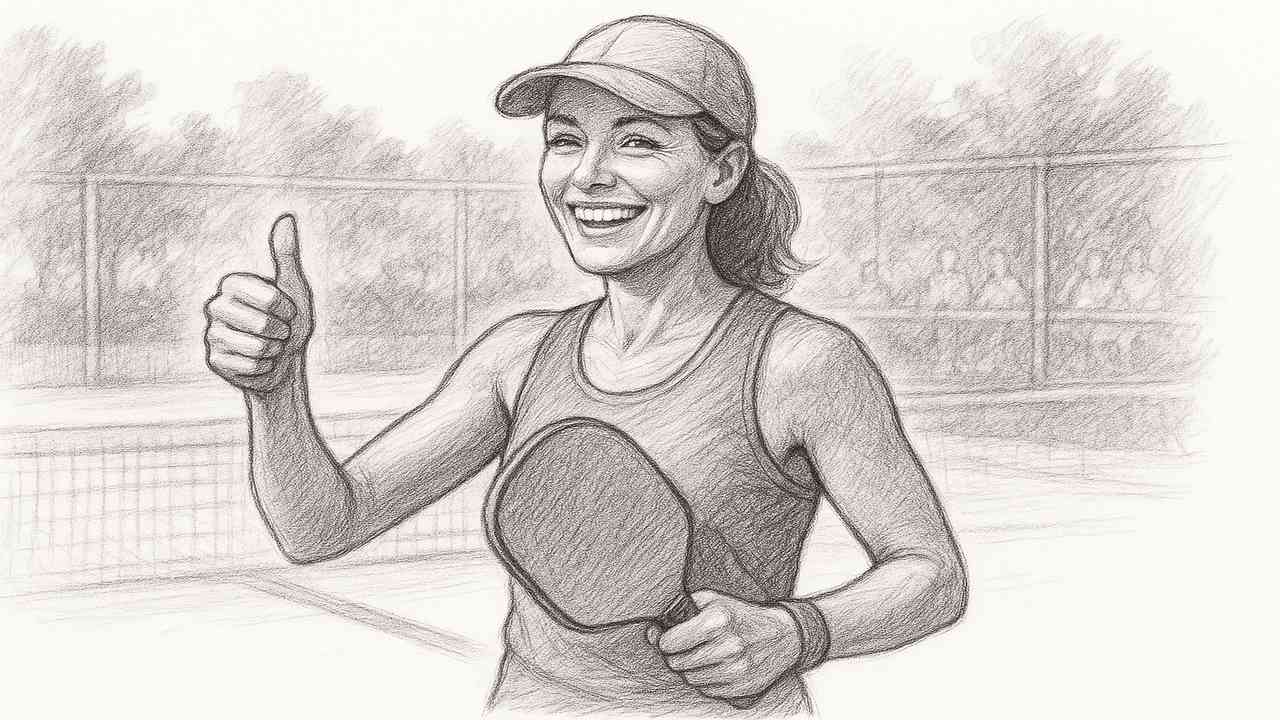The Pickleball Code: Unwritten Rules for Legendary Court Etiquette
Introduction
On a sunny morning at the local court, I watched two players finish a rally with a smile, tapping paddles in a quiet show of respect. That simple gesture captured the essence of pickleball’s unwritten rules—a code of etiquette that makes the game a joy for everyone, from kids to seniors. In pickleball, where 80% of games are played in doubles, how you play matters as much as what you play. The Picklepedia Code isn’t about formal rules; it’s about the heart of the sport—honesty, fairness, and community. Let’s explore three unwritten rules that define legendary court etiquette, helping you honor the game’s spirit and forge lasting connections on the court.
Play Fair – Honesty on the Court
Pickleball thrives on trust, especially when it comes to line calls. Unlike sports with referees, players call their own lines, a tradition rooted in the game’s community spirit. If a ball lands near the line, give the benefit of the doubt to your opponent—call it “in” if you’re unsure. This honesty ensures fair play, building respect among players of all ages. For example, if you’re playing doubles and the ball grazes the kitchen line, a quick “out” call keeps the game moving, but a dishonest call can sour the mood. Seniors, who often value the social aspect of pickleball, appreciate this fairness, as it fosters trust and keeps the court a welcoming place. Playing fair isn’t just a rule—it’s a way to honor the game’s legacy with integrity.
Share the Court – Building a Welcoming Space
Pickleball courts are often bustling with players, so sharing the space respectfully keeps the community thriving. Arrive early for your session, and if courts are busy, rotate after one game—typically to 11 points—to give others a chance. Keep noise down during play; a loud shout might distract nearby games, especially in community centers where seniors play. After a match, a simple paddle tap with your opponent or partner shows gratitude, a tradition that’s become a hallmark of pickleball’s camaraderie. If you’re waiting, don’t hover too close to active courts—give players their space to focus. These small acts of courtesy ensure everyone feels welcome, from young kids learning the game to seniors enjoying a social outing, making the court a place where every player belongs.
Foster Community – Respect and Support for All Players
Pickleball’s heart lies in its community, and the unwritten code calls for respect and support to keep that spirit alive. If a beginner joins your court, offer a quick tip—like how to hold the paddle—or a kind word to boost their confidence. Introduce yourself before a game; a simple “I’m Sarah, nice to meet you” can turn strangers into friends. Avoid overpowering less experienced players with hard shots—instead, play to their level to keep the game fun for everyone. For seniors, who make up a growing part of pickleball’s 36 million players in 2025, this inclusivity means they can join without feeling intimidated. These actions—supporting, welcoming, and adapting—build a court culture where every player, regardless of age or skill, feels valued and inspired to keep playing.
Conclusion
The Picklepedia Code’s unwritten rules—playing fair, sharing the court, and fostering community—turn every pickleball game into a celebration of respect and connection. By embracing these principles, you honor the sport’s legacy and create a space where everyone can thrive. Whether you’re calling a close line or welcoming a newcomer, you’re building a legendary court culture. Take these rules to heart, share them with your fellow players, and watch your community grow. Have your own etiquette story? Add it to this wiki and help shape pickleball’s legendary tradition—your kindness can inspire the next court legend!
